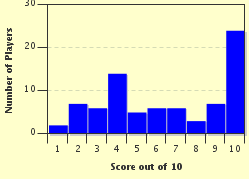Quiz Answer Key and Fun Facts
1. If I say, 'Hola! Bon dia!' to you in Catalan, what am I saying?
2. If I asked you, 'Com estàs?' in Catalan, how would you typically respond?
3. If you answered a question by saying, 'Sóc dels Estats Units,' what question could you NOT be answering?
4. What is an appropriate answer to the question, 'Quants anys tens?' in Catalan?
5. If a shop in Catalonia is open, the sign says, 'obert'. What does it say if the shop is closed?
6. Romance languages are different from Germanic languages like English in the way they say 'there is' and 'there are'. As you can see, in English there are two options, singular and plural. However, in Romance languages there is usually just one way to say 'there is/are'. Catalan is no exception! These answers are all ways to say 'there is/are' in Romance languages. The question is, which one is Catalan?
7. In Catalan, a sister is called 'germana'. What do you call your brother?
8. If you ask for directions in Catalonia and somebody tells you that what you are looking for is 'a l'esquerra', where is it?
9. One phrase I saw frequently in Barcelona was 'Visca Catalunya!' How would best this translate into English?
10. There are many ways of saying 'goodbye' in Catalan. Which of the following is NOT one of them?
Source: Author
fab4lover
This quiz was reviewed by FunTrivia editor
Bruyere before going online.
Any errors found in FunTrivia content are routinely corrected through our feedback system.

